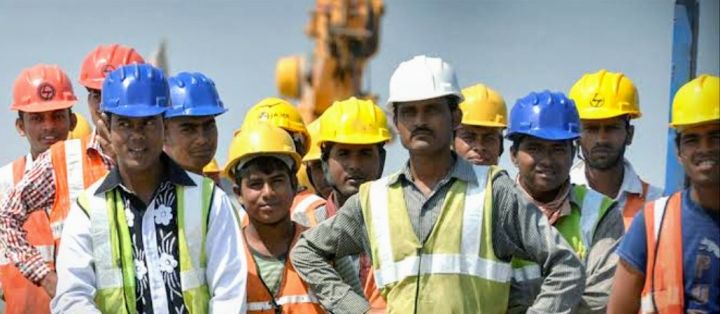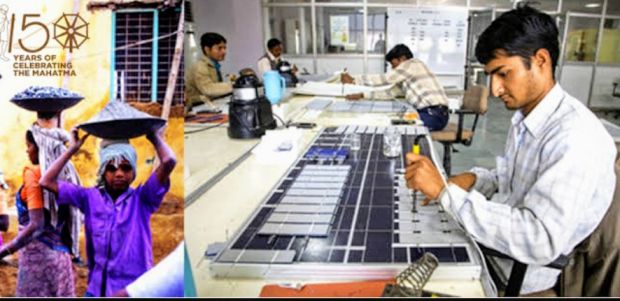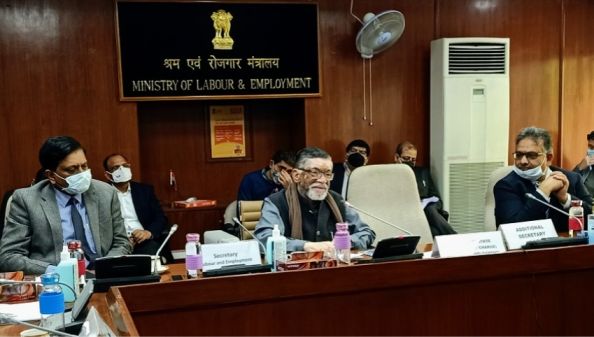NEW DELHI: The new Labour Codes – Code on Wages 2019, Industrial Relations Code 2020, Code on Social Security 2020, and Occupational Safety, Health and Working Conditions Code 2020 are expected to bring in much-awaited labour reforms in the country.
Among other reforms, these codes aim to expand the social security net to the informal sector and migrant workers, promote fixed-term employment, equal social security benefits to permanent and fixed-term employees and increase the coverage for payment of minimum wages.
However, the ambiguity prevails in the corporate world in India, especially with the MNCs, which are not very clear about the rules bring framed by the central as well as various state governments.
Also prevails anxiety about when exactly these new Labour rules would get implemented – in April or after the assembly elections in four states including West Bengal are held and their results are announced.
As Kenji Sugino, Secretary-General, Japan Chamber of Commerce and Industry in India (JCCII), puts it, “The JCCII member companies were very curious about the new Labour Codes especially during the month of January and February, and they got in touch with their respective consulting firms for this. And these firms have been able to address many of their queries. However, some of the questions still remain to be answered.”
And these questions are: “When the union ministry is going to roll out the new Rules – in April or later? Also, it is not clear whether the states are ready the rules framed by them individually, and when are they going to implement these rules – before or after the Central government does it?” Kenji Sugino added.
 According to the Japanese business and management consultants, many of the Japanese companies are not so clear about the new code of labour laws, as these are not defining what exactly will be the change.
According to the Japanese business and management consultants, many of the Japanese companies are not so clear about the new code of labour laws, as these are not defining what exactly will be the change.
“That is something I hear from any Japanese management. Nobody is clear what’s going to be different once this law is stipulated,” said Hidehito Jay Araki, Managing Director, Casa Blanka Consulting Pvt. Ltd., and Director, Japan Business, Udyen Jain & Associates.
The industry demands that the union Labour and Employment Ministry should come out with some clarity on the subject and interact with the representative organisations such as JCCII, JETRO, and it will help Japanese management understand the objective of this new law.
“The JETRO and JCCII can further provide valuable information on new labour codes and rules to the member companies. JETRO circulates monthly reports and updates of Indian laws or incidents with the members,” Hidehito Jay Araki added.
JETRO represents more than 1400 Japanese companies in India, whereas JCCII has 456 Japanese companies as members in Delhi NCR.
There is a limited amount of clarity on the kind of labour reforms that are coming our way in the corporate world in India, whether it’s the Indian companies or the Japanese or Koreans, or others.
As Vijay Saini, CEO, SVOD Professional, a business consulting firm serving Korean companies in India says that though the union government is yet to notify the rules of new Labour Codes and come out with clarity, there is some kind of hint on what’s coming next.
“Companies with employees strength of up to 300 would be at liberty to lay them off without prior government permission. Previously, the employees limit was at 100. It is proposed to hike the limit of 20 workers from the earlier 10 for acquiring factory license for the manufacturing facility with power connection. However, the new Labour Codes would cause a rise in employee cost as the minimum wage ceiling limit can be established for all employees, a rise in post-retirement benefits may further increase the gratuity cost, and PF, ESI rates may change. For the companies hiring GIG workers, they would have to implement social security for them thereby increasing the employee-cost,” Vijay Saini added.
 He, however, said, that the decision of the union government to bring in much-awaited labour reforms is a proactive step as it would result in business promotion but would also instill a sense of security as well as professionalism amongst the employees. Vijay Saini is of the view, “New Labour codes are likely to significantly enhance ease of doing business in India, especially for SME sector, and also to provide the universal social security for 500-million workforce of India. Labour law reforms pave the way for the increase in the Foreign Direct Investment inflow.”
He, however, said, that the decision of the union government to bring in much-awaited labour reforms is a proactive step as it would result in business promotion but would also instill a sense of security as well as professionalism amongst the employees. Vijay Saini is of the view, “New Labour codes are likely to significantly enhance ease of doing business in India, especially for SME sector, and also to provide the universal social security for 500-million workforce of India. Labour law reforms pave the way for the increase in the Foreign Direct Investment inflow.”
The Korean companies in India, like others, are in the wait & watch the situation, and are keeping a close eye on the development.
Hee-chul Jung, Secretary-General, Korea Chamber of Commerce and Industry in India (KOCHAM) said that Korea Trade-Investment Promotion Agency (KOTRA) was keeping a tab on the related developments, and also held a couple of webinars on the subject.
“We also might organize such a webinar but not right away as this is a very early phase. We are observing the situation patiently and see how this adapts to the industry or how the government will change some of the clauses. Something has to be done, but we are patiently observing,” the KOCHAM chief added.
However, some experts advise the industry to get ready to adapt to the new changes the new labour reforms are expected to introduce when implemented.
Gagan Verma, Partner, Kochhar & Co – a well-known law firm, said, “The new Labour Law Codes reflect a conscious effort being made by the policymakers in achieving a balance between employees’ rights vis-à-vis those of employers. All stakeholders are advised to evaluate the impact; be ripe to implement; and make all necessary arrangements to acclimatize their organizational departments such as human resources, legal, financial and accounting as well as employees, with the new Labour Law Codes.”



